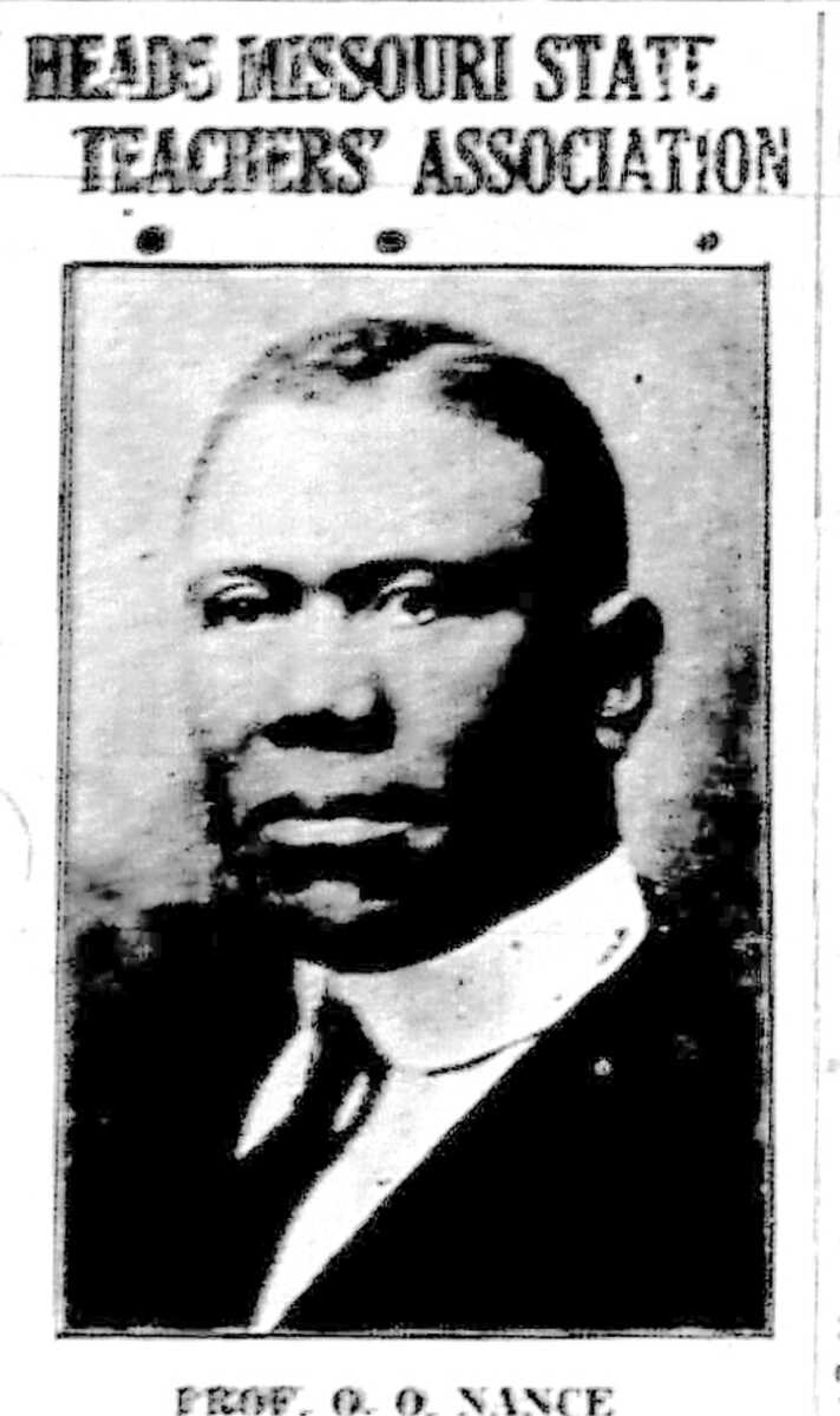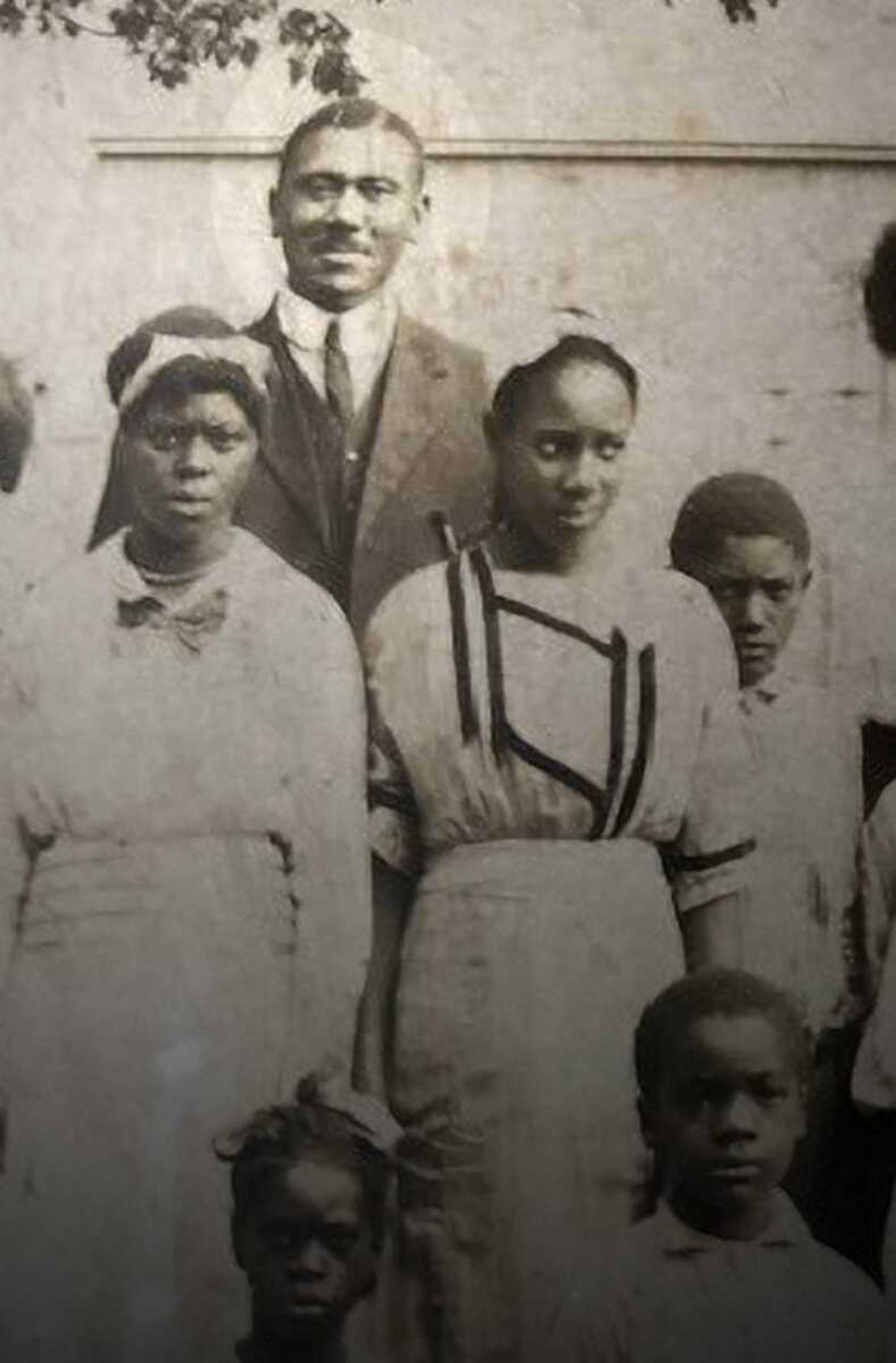Professor Oliver O. Nance
After 34 years at the helm, Professor John S. Cobb relinquished principalship of his beloved Lincoln School to Professor Oliver Odell "O.O." Nance. As successor, Nance likely felt the pressure of oversight (Cobb stayed on as a grade teacher for four additional years), but saw the open door of opportunity at the region's model Cape Girardeau school...
After 34 years at the helm, Professor John S. Cobb relinquished principalship of his beloved Lincoln School to Professor Oliver Odell "O.O." Nance. As successor, Nance likely felt the pressure of oversight (Cobb stayed on as a grade teacher for four additional years), but saw the open door of opportunity at the region's model Cape Girardeau school.
Born and raised in Jackson, Nance was no stranger, but had been away in pursuit of his own education and as teacher in Festus, Missouri. His parents, Wesley and Jane (nee Kinder) Nance, and siblings Fred and Addie, welcomed him home in 1914. They also welcomed his new bride and colleague teacher, Rosetta Taylor. Cape's segregated Lincoln School was doubly enhanced with new leadership and fresh educational methods.
Nance built upon the notoriety of the school's strict academic tradition by expanding opportunities in the arts and athletics. In the early 1920s, he led the school body to regularly present public "entertainments" in an effort to raise funds for extra-curricular activities. As result, the school added brass band, orchestra, athletics and video technology -- a 600 set of stereopticon pictures, with stereoscopes and a lantern projector.
Nance's distinguished competence and professionalism were quickly recognized beyond the city. Missouri governors appointed him delegate to the Negro National Education Congress in Washington D.C., in 1916, and commissioner of the Missouri Negro Industrial Commission in 1922. Charged with collecting facts of conditions, view-points, and desires of the Black community, the Commission's aim was improvement for the citizens in Missouri in areas of employment, education, rural life and health.
Nance took seriously the Commission's work, and embarked on a study of Cape Girardeau's Black community which became a model for other locations. In collaboration with the State Teachers College, Nance, with local Black pastors (the Revs. W.H. Hill and J.W. Curry), developed forms and policies for the study. Conducted by white undergraduate sociology students guided by Dr. M.R.Thompson, the study documented race characteristics, prejudices, attitudes and "tendencies" -- heavily steeped in the racial struggles of the era. Results candidly identified substandard living conditions and service disparities experienced by many Black families in Cape. Portions of the study were published in the M.N.I. Commission's 1921/22 Report, distributed statewide. The full sociological report is archived in Special Collections at Southeast Missouri State University.

Nance was a member of St. James African Methodist Episcopal Church and served as the superintendent of Sunday School for many years. Though he and Rosetta had no children of their own, their influence in the lives of children at school and at church lived on.
In 1924, Nance resigned as principal from the renamed John S. Cobb High School to become field agent and high school inspector for Lincoln University, working from St. Louis. In 1929, a troublesome left leg caused Nance to seek medical advice at Barnes Hospital. Doctors operated and found cancer. Nance died six months later at the age of 54. Oliver O. Nance was a progressive educator deserving remembrance.
Connect with the Southeast Missourian Newsroom:
For corrections to this story or other insights for the editor, click here. To submit a letter to the editor, click here. To learn about the Southeast Missourian’s AI Policy, click here.











